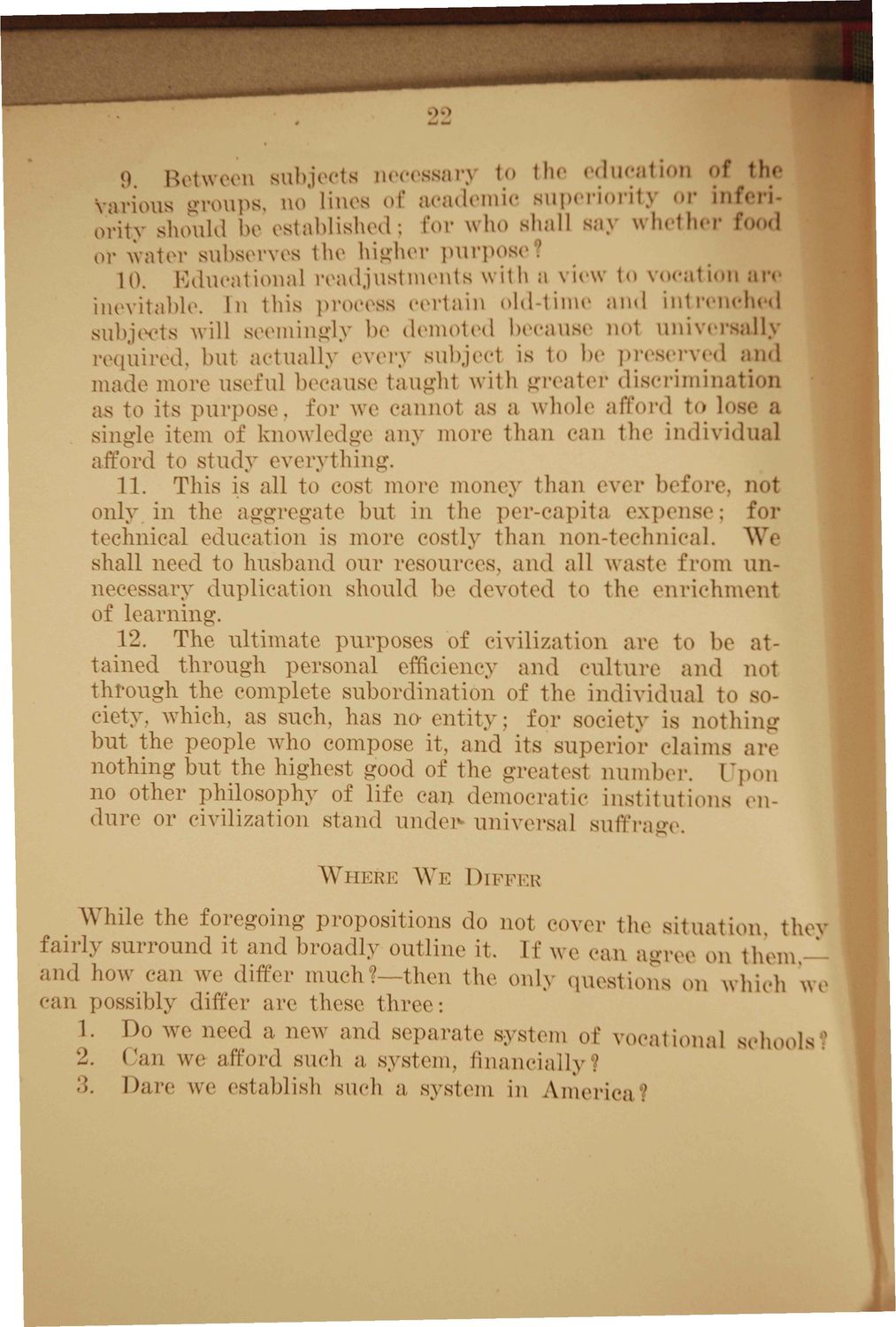Caption: Booklet - What is Involved in a Vocational Education (Davenport) (1915)
This is a reduced-resolution page image for fast online browsing.

EXTRACTED TEXT FROM PAGE:
22 9. Between subjects necessary to the education of tl Various groups, no lines of academic superiority or infei ority should be established; for who shall Bay whether I I or water subserves the higher purpose.' 10. Educational readjustments with a view to vocati n are inevitable. In this process certain old-time and intrenched subjects will seemingly be demoted because nol universally required, but actually c\wy subject is to be preserved and made more useful because taughl with greater discrimination as to its purpose, for we cannot as a whole afford to I • a single item of knowledge any more than can the individual afford to study everything. 11. This is all to cost more money than ever b fore, not only in the aggregate but in the per-capita expense; for technical education is more costly than non-technical. \\ shall need to husband our resources, and all waste from unnecessary duplication should be devoted to the enrichment of learning. 12. The ultimate purposes of civilization are to be attained through personal efficiency and culture and not through the complete subordination of the individual to society, which, as such, has no entity; for society is nothing but the people who compose it, and its superior claims are nothing but the highest good of the greatest number. Upon no other philosophy of life can democratic institution- endure or civilization stand under- universal suffraffe WHEKK W E DIFFER While the foregoing propositions do not cover the situation, they fairly surround it and broadly outline it. I f we can agree on them and how can we differ much?—then the only questions on which we can possibly differ are these three: 1. Do we need a new and separate system of vocational schools ' 2. Can we afford such a. system, financially? Dare we establish such a system in America? > • >.
|